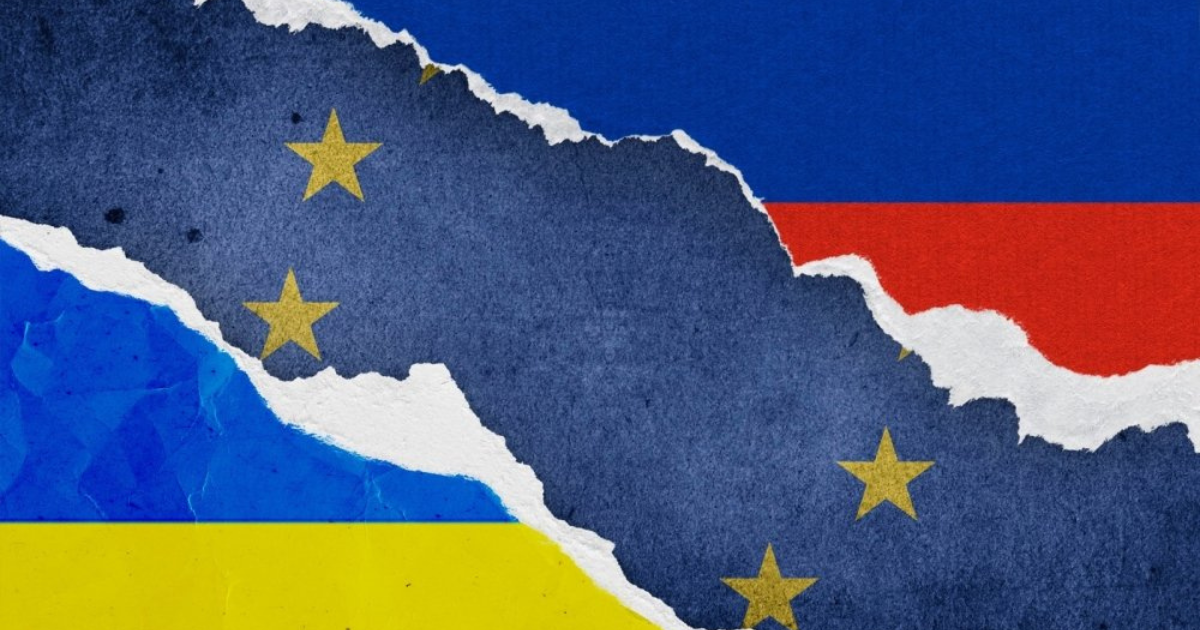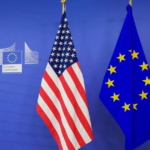Since Russian tsar Peter the Great modernized the country and transformed it into a European nation in the early 18th century, Europe-Russia relations have been complicated. On the one hand, Russians admired European culture, readily learnt French and spent vacations in Baden or Nice. On the other hand, Europe was seen as a source of dangerous revolutionary ideas and a threat to national identity.
Under Communist rule (1917-1991) most contacts were cut off. Western Europe turned into a political enemy and economic rival. Eastern Europe (after WW2) became a place field for the socialist experiment. But while official propaganda condemned Western society and economy, many Soviet people still dreamed of French perfumes and German jeans.
The collapse of Communism opened wide opportunities for political, economic and cultural cooperation, but this golden era didn’t last long. In the 2010s EU-Russia relations were already marred by geopolitical tensions. Russian invasion of Ukraine in 2022 put an end to most contacts. What’s next? Do the EU and Russia have any future?
Russian political elites seem to have answered a firm “NO”. All political contacts have been frozen. Russian permanent representative to the EU has been recalled. Most European states have been included in the specially created list of unfriendly countries.
According to Russian Foreign Minister Sergey Lavrov, “The EU has lost Russia”. State Duma Chairman Vyacheslav Volodin went even further and claimed that “European countries are actually on war with Russia”.
Russian citizens seem to support these anti-Western sentiments. Levada Center, Russia’s only independent polling company, reports that as of August 2023, only 23 per cent of Russians have positive attitude towards the EU (compared to 37 per cent in February 2022 and 49 per cent in January 2020).
Direct flights between the EU and Russia were canceled in the first days after the invasion. Stricter requirements and less consular staff made obtaining a Schengen visa by Russian citizens considerably more difficult. Even academic and cultural exchanges mostly stopped.
Russian economy swiftly turned to the East. In 2022, trade with China and Turkey increased by 28 and 84 per cent accordingly. Germany remained the only Western country among Russia’s top-5 trading partners (compared to 3 Western states in 2021). Russia’s gas export to Europe shrank from 206 billion cubic meters in 2021 to 122 in 2022 and is expected to fall by 50 per cent further in 2023.
Political, social and economic indicators show a rather bleak picture of EU-Russia relations. It seems there are neither objective reasons nor willingness to restore them. However, it is not as straightforward as it may seem.
Firstly, Vladimir Putin’s regime is not forever. And it is not only liberal opposition (now mostly imprisoned or in emigration) who can stop the war in Ukraine, turn back to democratic values and the West. Few expected Nikita Khrushchev, Stalin’s faithful comrade, to stop repressions, conduct political reforms and even to condemn his former boss 70 years ago.
Secondly, public opinion can change easily as soon as anti-Western propaganda stops. This already happened after the fall of Communism. Moreover, European brands from cars to clothes are still valued. European culture is still closer to Russians than Indian or Chinese. Germany and the Czech Republic are still the most popular destinations for Russian students to study abroad.
Thirdly, if and when the political relations are restored, business will follow. As it already happened in 1991. Political obstacles aside, EU and Russian markets are simply too attractive for each other.
Of course, restoring the relations will be neither painless nor quick. Changes in Russian politics and society may take years. Or they may happen in just a few months. Some things are hard to predict. What leaves little doubt is that sooner or later Russia will turn back to Europe. The question is whether Europe will be ready and willing to do the same.
Disclaimer: The opinions expressed in this analysis are solely those of the respective analyst/author and do not represent the official stance or views of EU Intelligence.






